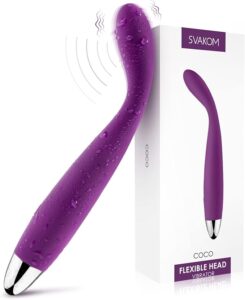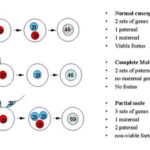
I was catching up with a friend recently, and as we chatted about health, relationships, and life, the conversation took a curious turn. She leaned in, clearly hesitant, and asked, “Does female masturbation cause infertility?” I was caught off guard—not because the question seemed strange, but because so many people, even those close to us, have lingering questions about female sexuality.
As women, our sexuality often lives in the shadows, surrounded by myths and misconceptions. I realized her question represented a broader, quieter curiosity many women feel, so I decided to dive deep and set the record straight. Here’s what I discovered about the myths, the science, and the truth behind female masturbation and its effects on fertility.
Busting Myths About Female Masturbation

Myth #1: Masturbation Damages Reproductive Health
One of the most enduring myths suggests that masturbation somehow “wears out” or harms a woman’s reproductive organs, leading to potential fertility issues. This misconception likely stems from outdated beliefs that the female body is too “fragile” for certain forms of pleasure. However, just as physical activity strengthens the body, masturbation is a natural activity that does not harm reproductive health. According to medical experts, female reproductive organs are robust and well-designed to handle bodily changes, including the effects of self-pleasure. Masturbation is entirely safe and has no detrimental impact on reproductive functions.
Myth #2: Masturbation Throws Off Hormones
Another common misconception is that masturbation disrupts a woman’s hormonal balance, leading to irregular periods or potential issues with hormonal health. While it’s natural to be concerned about factors that could influence hormonal stability, there’s no evidence to support this claim. In reality, masturbation doesn’t interfere with hormone levels, menstrual cycles, or overall hormonal health. Interestingly, self-pleasure can even reduce stress, which is beneficial for hormonal balance. By releasing endorphins, masturbation can support mental well-being, which indirectly aids in maintaining healthy hormonal levels.
Myth #3: Masturbation Causes “Wear and Tear”
A persistent myth warns that too much masturbation leads to “wear and tear” on the reproductive system, implying that it could negatively affect health over time. This belief is unfounded; the body isn’t “worn out” by natural activities like laughing or exercising, and masturbation is no different. The female reproductive system is resilient, designed to handle various natural activities without incurring damage. Self-exploration, when done safely, doesn’t harm any aspect of reproductive health. It’s a natural act that promotes self-awareness and emotional well-being.
Myth #4: Women in Relationships Don’t Masturbate
Many believe that women in relationships no longer need or desire masturbation, viewing it as a substitute for partnered intimacy. However, self-pleasure is common for people of all relationship statuses and can even be a healthy addition to a relationship. Solo pleasure allows for self-discovery, reduces stress, and can enhance intimacy by helping partners better understand their bodies. Masturbation isn’t a replacement for intimacy; it’s simply one way individuals connect with their own bodies.
Myth #5: Masturbation Decreases Sexual Desire
Some think that frequent masturbation might reduce libido or decrease interest in partnered sex. In truth, self-pleasure can often enhance sexual desire by helping individuals understand their own bodies, identify pleasurable sensations, and build confidence. Studies show that women who practice self-pleasure frequently report greater sexual satisfaction with their partners. Far from diminishing desire, masturbation can be a tool for increasing intimacy and enhancing partnered experiences.
Myth #6: Masturbation Is Only for Men
There’s a misconception that men are the only ones who explore and engage in self-pleasure, while women’s sexuality is somehow less active or focused only on relationships. The truth is, women also experience natural desires and curiosity about their own bodies. Studies indicate that women of all ages engage in self-pleasure, and this can be a healthy and empowering form of self-care. It’s time to break free from the stereotype that self-pleasure is a “male” activity and recognize it as a natural part of human experience, regardless of gender.
Myth #7: Masturbation Is Immoral or Dirty
In many cultures, female self-pleasure is unfairly stigmatized as immoral or shameful, especially when compared to attitudes around male sexuality. This outdated viewpoint only serves to create guilt or embarrassment around a natural part of self-exploration. Female masturbation is a normal bodily function, no different than any other form of self-care. Rather than focusing on outdated moral judgments, embracing a balanced understanding of sexuality can lead to healthier relationships with our own bodies.
Does Female Masturbation Cause Infertility – What Science Has to Say
When I started researching, I was amazed at how much misinformation surrounds this topic. According to experts, there is no scientific evidence linking female masturbation to infertility. Many healthcare professionals agree that masturbation is neither harmful nor beneficial to fertility. It simply doesn’t have an impact.
Masturbation is often compared to other forms of self-care, like meditation or exercise. It’s a natural bodily function that provides mental and physical relaxation. Female reproductive health, it turns out, is influenced by other factors—such as age, genetics, and lifestyle habits—rather than self-pleasure.
The reproductive organs aren’t “worn out” by masturbation, and hormonal imbalances are not caused by self-care. Women’s bodies are incredibly resilient, designed to withstand everything from hormonal changes to childbirth, and masturbation isn’t going to hinder any of these natural processes.
The Benefits of Female Masturbation

Interestingly, female masturbation actually has health benefits that can indirectly support a woman’s overall well-being, including her reproductive health. Here are some scientifically backed benefits:
- Reduces Stress: Masturbation releases endorphins, which naturally reduce stress and anxiety. Reduced stress is linked to better overall health, including reproductive health.
- Relieves Menstrual Cramps: Many women report that masturbation helps relieve menstrual cramps. Increased blood flow to the pelvic area can alleviate pain and discomfort.
- Improves Sleep: After climax, the body often feels relaxed, leading to improved sleep quality. Better sleep, in turn, positively impacts hormonal balance.
- Enhances Body Awareness: Masturbation encourages women to learn about their bodies and what brings them comfort. This can lead to improved self-confidence and a stronger connection with oneself.
These benefits are a reminder that female masturbation is a natural part of well-being, far from being harmful.
What Really Impacts Fertility?
It’s essential to understand the real factors affecting fertility, as this often brings peace of mind to women who might feel worried about their health. Here are a few factors that do impact fertility:
- Age: Fertility naturally declines with age, especially after 35. This is one of the biggest factors in conception.
- Lifestyle Habits: Smoking, heavy alcohol consumption, and an unhealthy diet can negatively impact fertility over time. Good nutrition, regular exercise, and moderate alcohol intake can all support reproductive health.
- Health Conditions: Conditions like polycystic ovary syndrome (PCOS) and endometriosis can affect fertility. These conditions require medical guidance and lifestyle changes to manage.
- Environmental Factors: Exposure to toxins and pollutants can also impact reproductive health. Living a clean lifestyle and being mindful of harmful substances is crucial.
Masturbation is absent from this list. Fertility is a complex, deeply personal matter, influenced by a wide range of factors, but self-exploration isn’t one of them. Knowing what genuinely affects fertility can help women make informed decisions about their health.
Embracing a Positive Perspective on Female Sexuality
As I shared my findings with my friend, she was surprised to learn how many of her worries were unfounded. “I can’t believe I was carrying all that stress for no reason,” she said, a look of relief on her face. And honestly, isn’t it time we let go of these outdated myths? Embracing self-care, self-exploration, and factual knowledge is far more empowering than holding onto unnecessary fear.
Female masturbation is a personal choice, and as long as it’s approached in a healthy way, it doesn’t negatively impact fertility or reproductive health. In fact, self-care routines can help women feel more connected to themselves, less stressed, and more at ease with their own bodies.
If you’ve ever wondered about the truth behind these myths, know you’re not alone. Sexuality is an essential part of the human experience, and understanding it can be a key to personal and emotional well-being.
How to Start Positive Conversations About Female Sexual Health
Breaking down myths and misconceptions starts with open conversation. Here are some ways to encourage a healthy dialogue:
- Share Reliable Resources: Recommend articles, books, or reputable websites that address female health topics with accurate information.
- Speak Honestly with Friends or Partners: Sometimes, opening up about these concerns can encourage others to share their own questions, which can lead to a supportive, informative discussion.
- Consult Health Professionals: A professional can clarify myths, provide insights, and offer guidance personalized to your health.
Starting these conversations not only clears up misconceptions but also fosters a culture of understanding and self-compassion.
FAQs About Female Masturbation and Fertility
u003cstrongu003eDoes female masturbation affect fertility in any way?u003c/strongu003e
No, female masturbation does not impact fertility. Studies and medical experts agree that self-pleasure has no negative effect on a woman’s reproductive health. Masturbation is simply a natural act with no bearing on fertility.
u003cstrongu003eAre there any risks associated with female masturbation?u003c/strongu003e
When practiced safely, masturbation is a low-risk activity. However, overuse of certain products, such as abrasive objects, or lack of personal hygiene can increase risk of infection. Practicing safe, hygienic self-care is recommended to avoid any discomfort or risk.
u003cstrongu003eCan masturbation actually benefit reproductive health?u003c/strongu003e
While masturbation does not directly benefit reproductive health, it has positive effects that indirectly support overall well-being. Reducing stress, relieving menstrual cramps, and promoting better sleep all contribute to a healthier body, which in turn can support reproductive health.
Support Your Fertility Journey with Pre-Seed

Final Thoughts: Letting Go of Myths and Embracing Self-Care
In the end, self-exploration is not the enemy of fertility. Busting these myths helps women move past outdated beliefs, allowing them to embrace a more honest, empowered approach to their health. If this article helped you rethink some misconceptions, consider sharing it. Starting conversations like these can help us build a more informed, supportive community where myths have no place.












